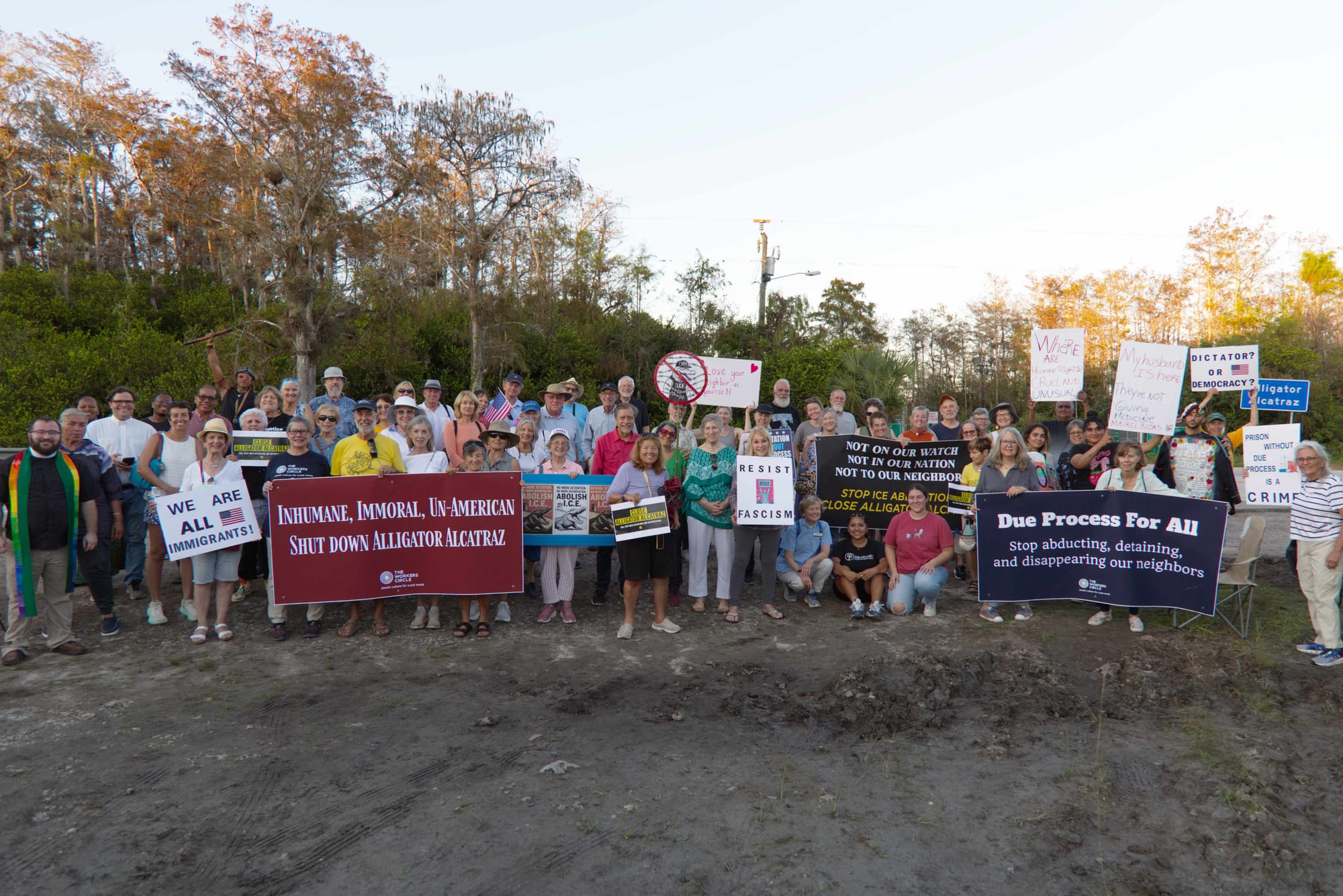Special Coverage of the 15th Weekly Sunday Prayer Vigil at the South Florida Detention Center
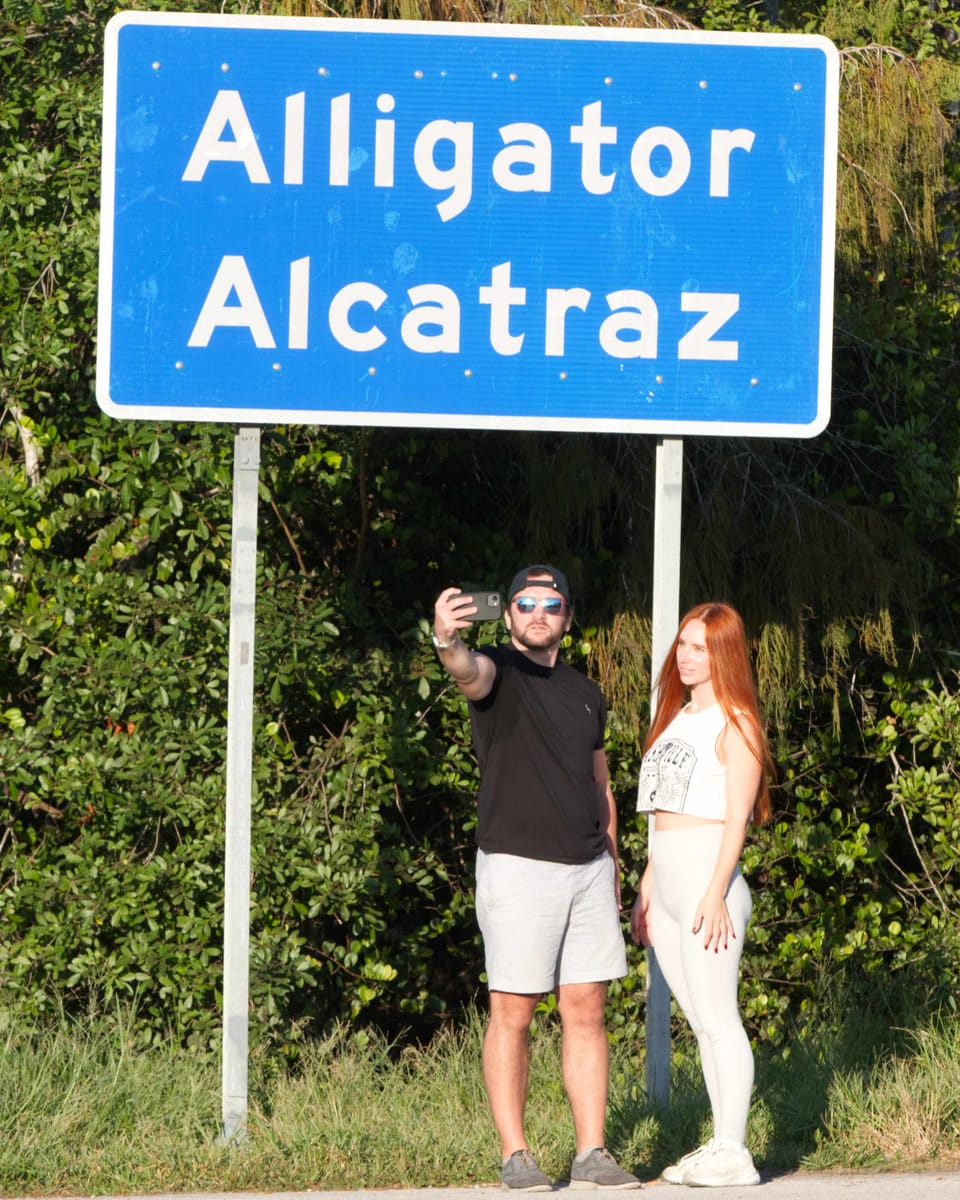
By Philip Cardella November 14, 2025
Florida US 41 near Mile Marker 48
While preparing this week's post for This Week in Florida's weekly blog two things became apparent:
1) I had forgotten to process the photos I took on Sunday
2) those photos told important stories that certainly haven't received much, if any media attention.
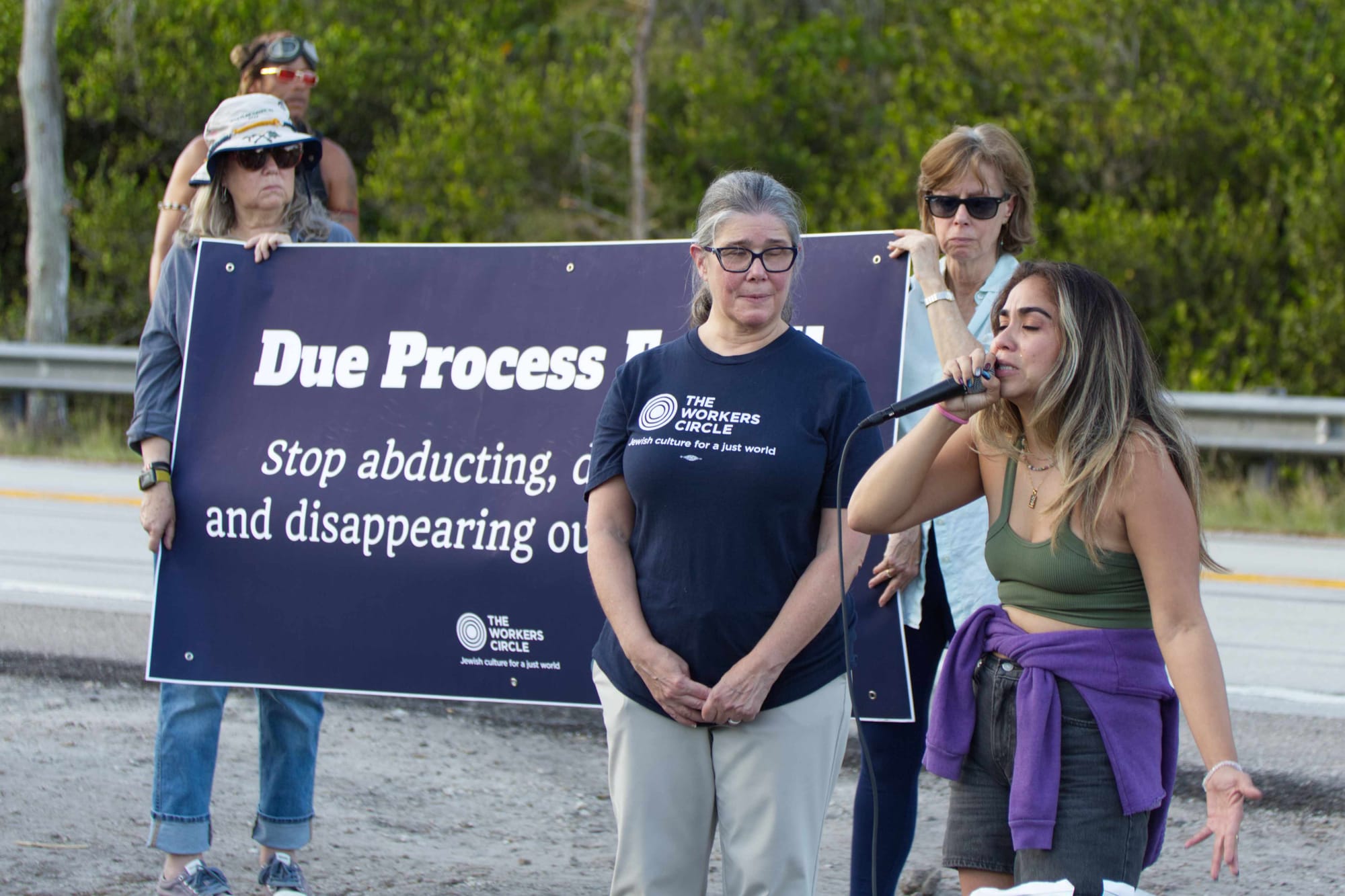
While a daughter of a detainee in the South Florida Detention Center, commonly known by its racist nickname, Alligator Alcatraz, told how her father was not only being strapped to a bed in the infirmary but also denied his diabetes medication, tourists popped out of their car across the street to take photos in front of the sign to the facility.
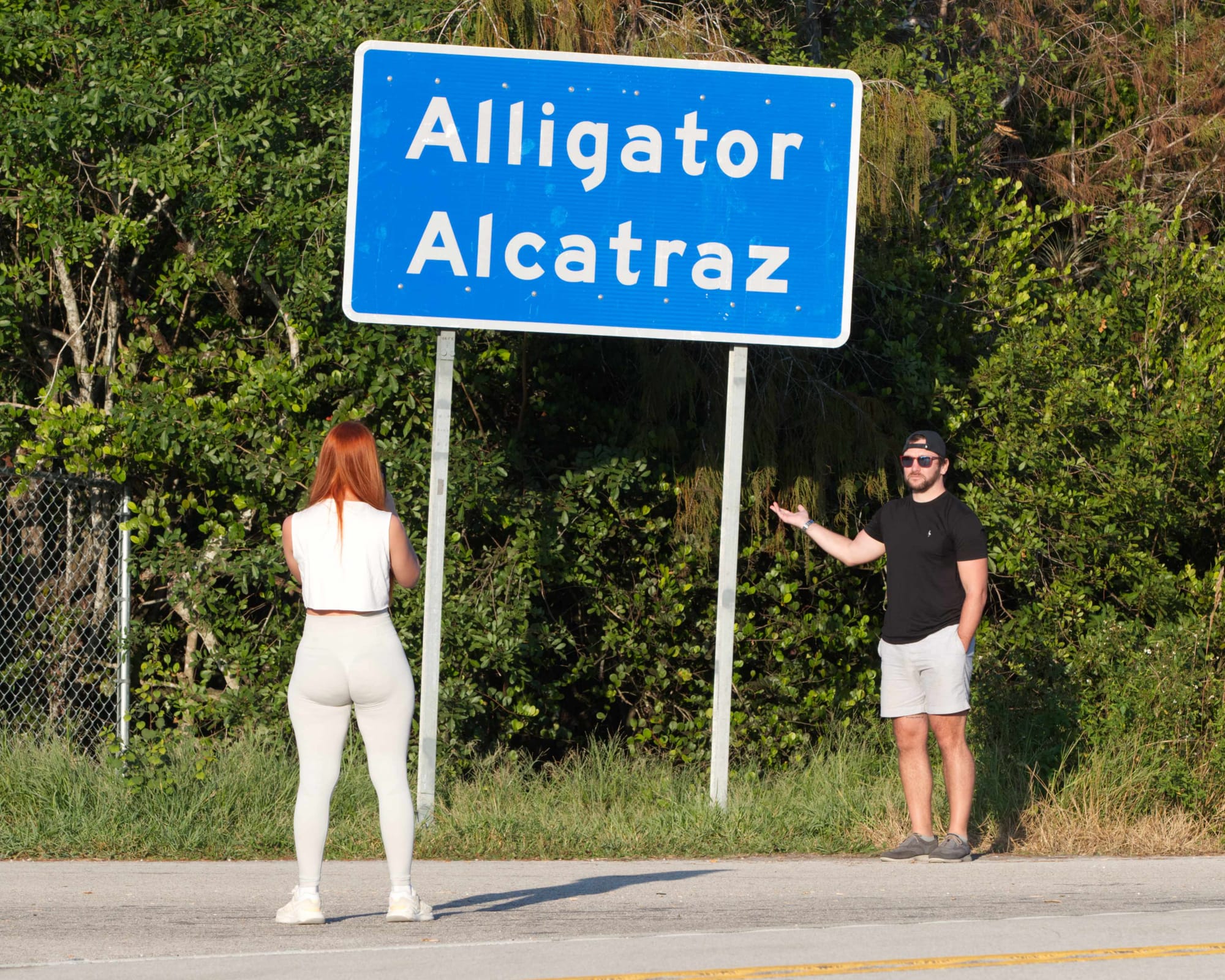
The daughter, Arianne Betancourt, told of how her father was told if he wanted his insulin he could sign self deportation papers and DHS would make sure he got his medication once he reached Mexico.
Betancourt, was not alone in representing a detainee of the facility being denied necessary medical care. A wife of a detainee received a call from her husband during the vigil and shared the call with the congregation while Betancourt translated for them.
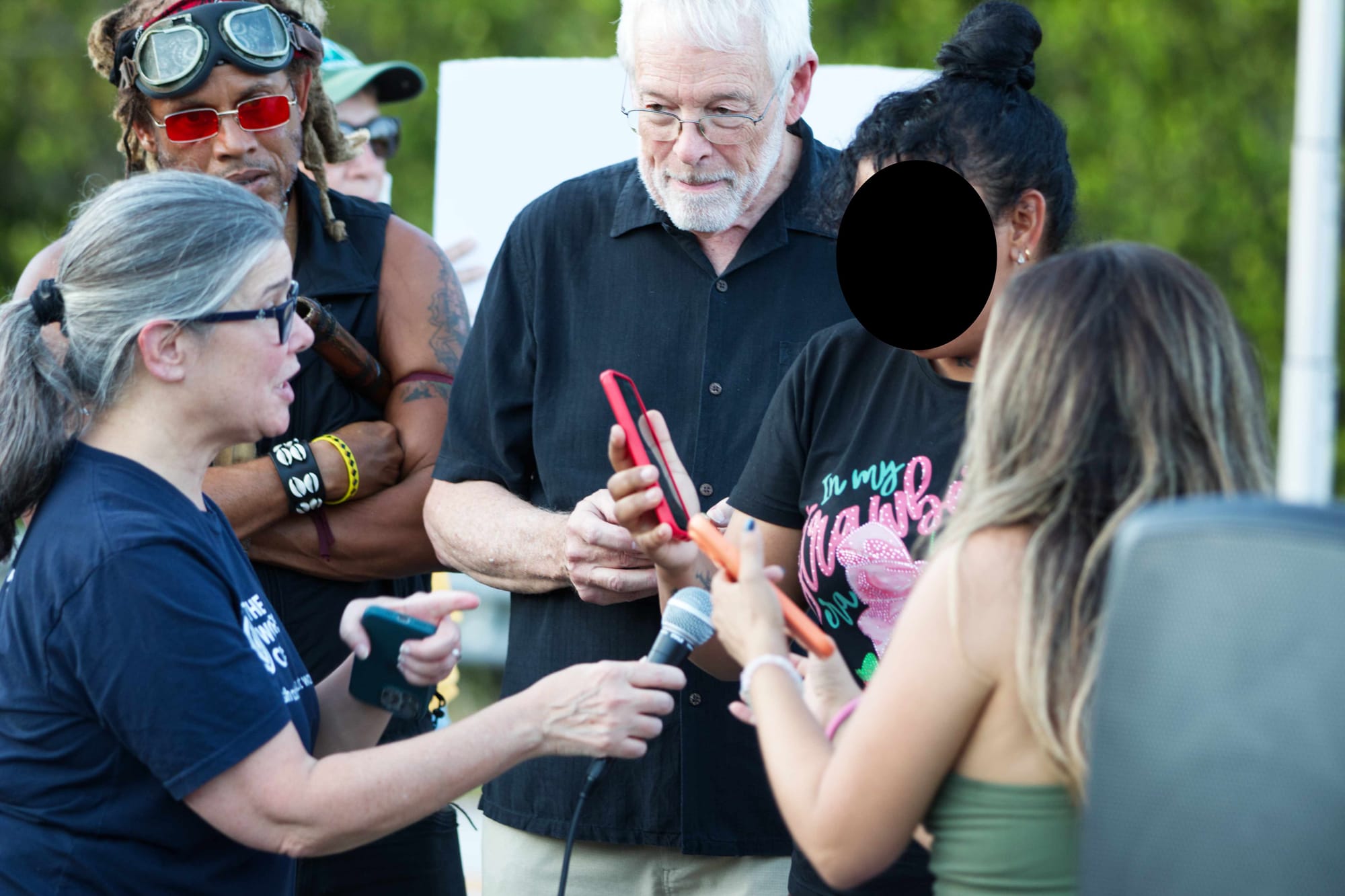
For this wife and mother of an infant, the call brought both relief– the detainees cannot regularly call out of the facility– and tears of frustration. The detainee shared how the food in the facility is inedible, often rotten or filled with bugs, how they can only brush their teeth a few times a week and how they've lost track of time in the facility.
Most of the speakers at the prayer vigil, who were mostly members of the clergy or had relatives in the detention center, mentioned that the detainees were being denied basic rights beyond food, such as due process.
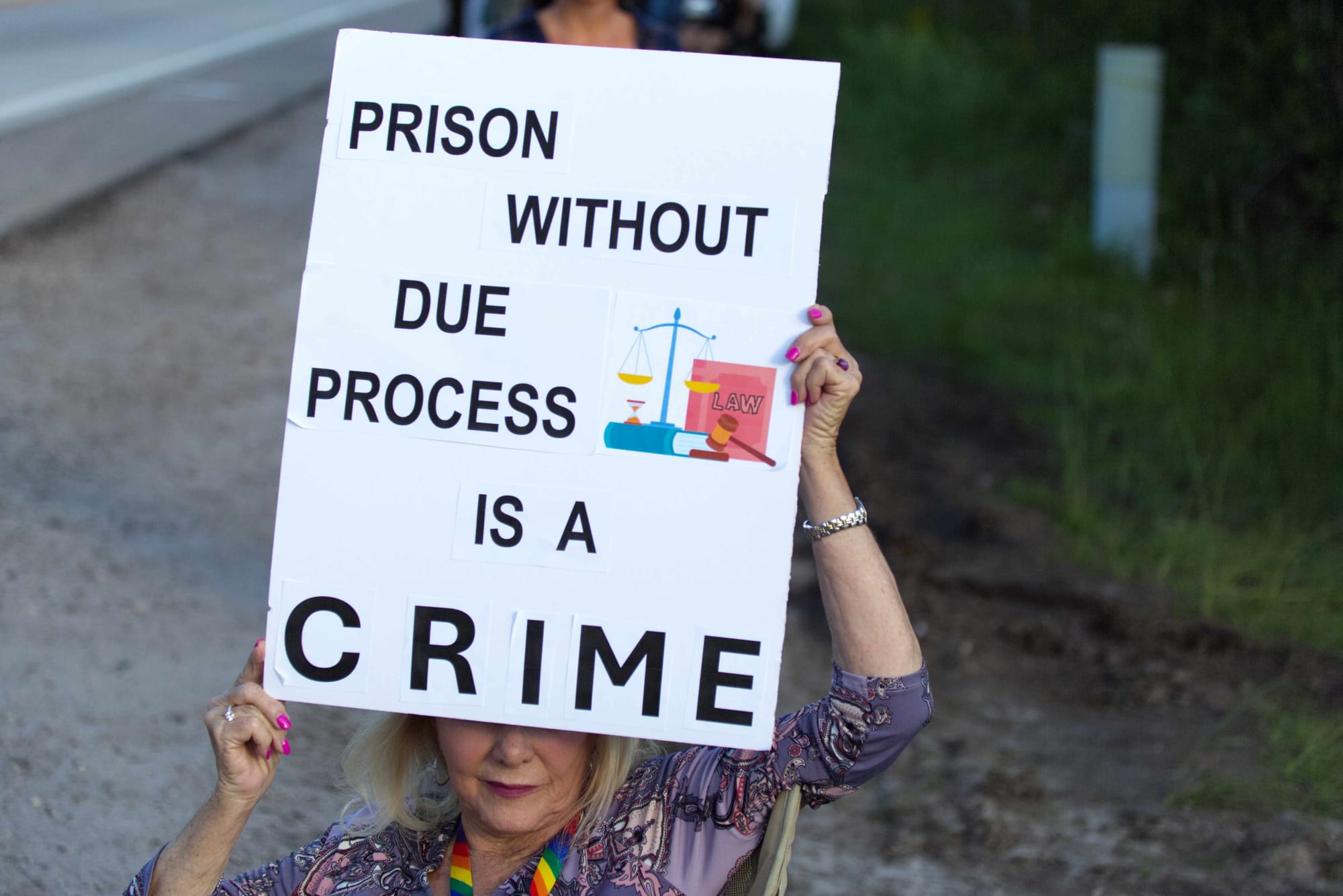
In fact, according to Betancourt, when her father asked to speak to the lawyer Betancourt had for him, he was told he had no rights to an attorney. When he asked to be moved from the infirmary, where he was strapped to a bed, back to the general population, straps were added to restrain him even further.
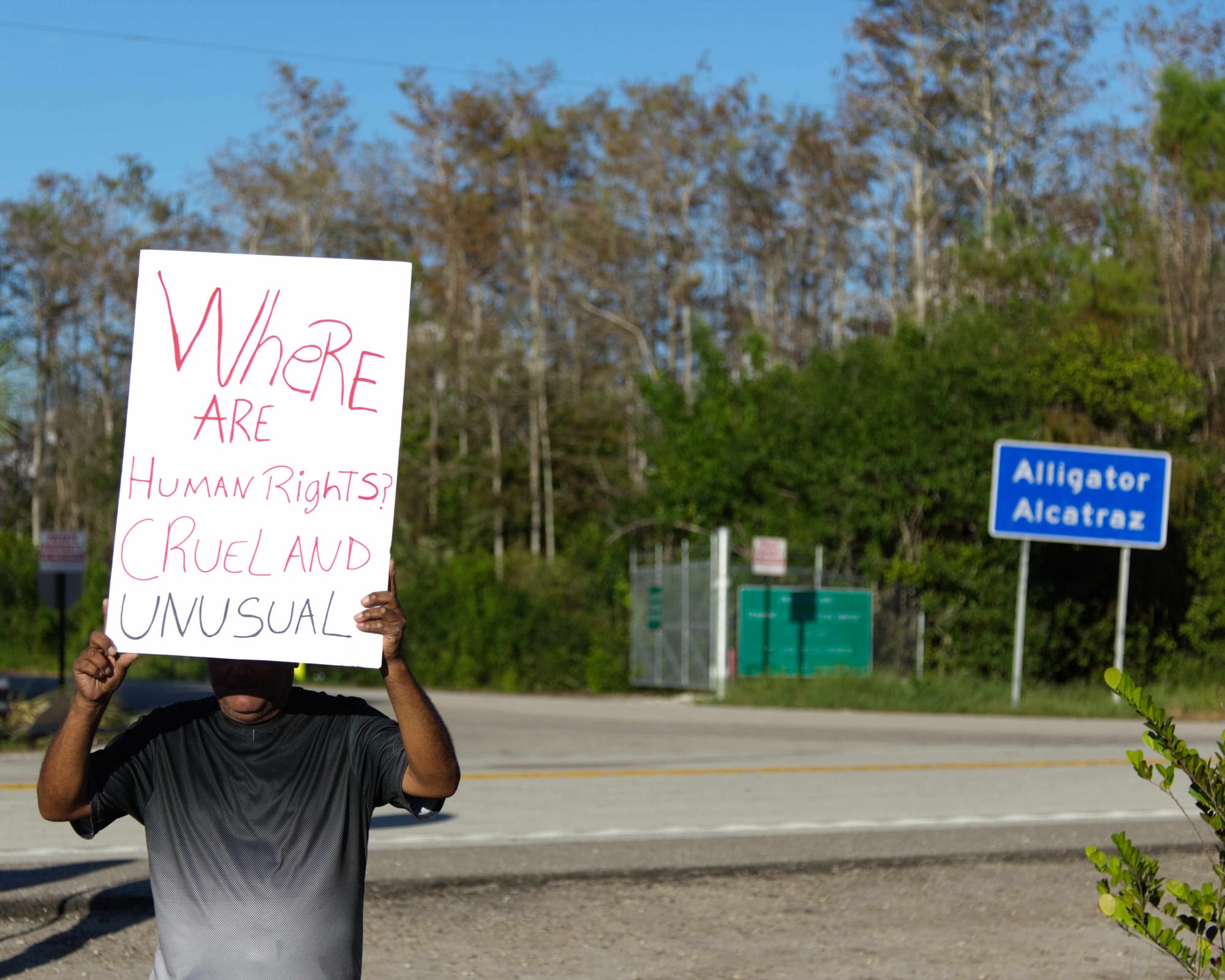
Signs held by attendees reflected the sentiment about their horror at the thought of lack of due process for detainees as well as shock at the treatment of the men (and some boys) in the facility.
The interfaith weekly Sunday prayer vigils at the site, about an hour east of Naples, Florida and an hour west of Miami, Florida (yes, that peninsula is that narrow) continue apace, with clergy members, advocates and supporters maintaining that they will be out there every week until the facility is shut down and returned to the Miccosukee Tribe of Indians and Miami-Dade County, who technically owns that part of the Big Cypress National Preserve, a holdover from the controversy that created the American National Preserve system in the first place.
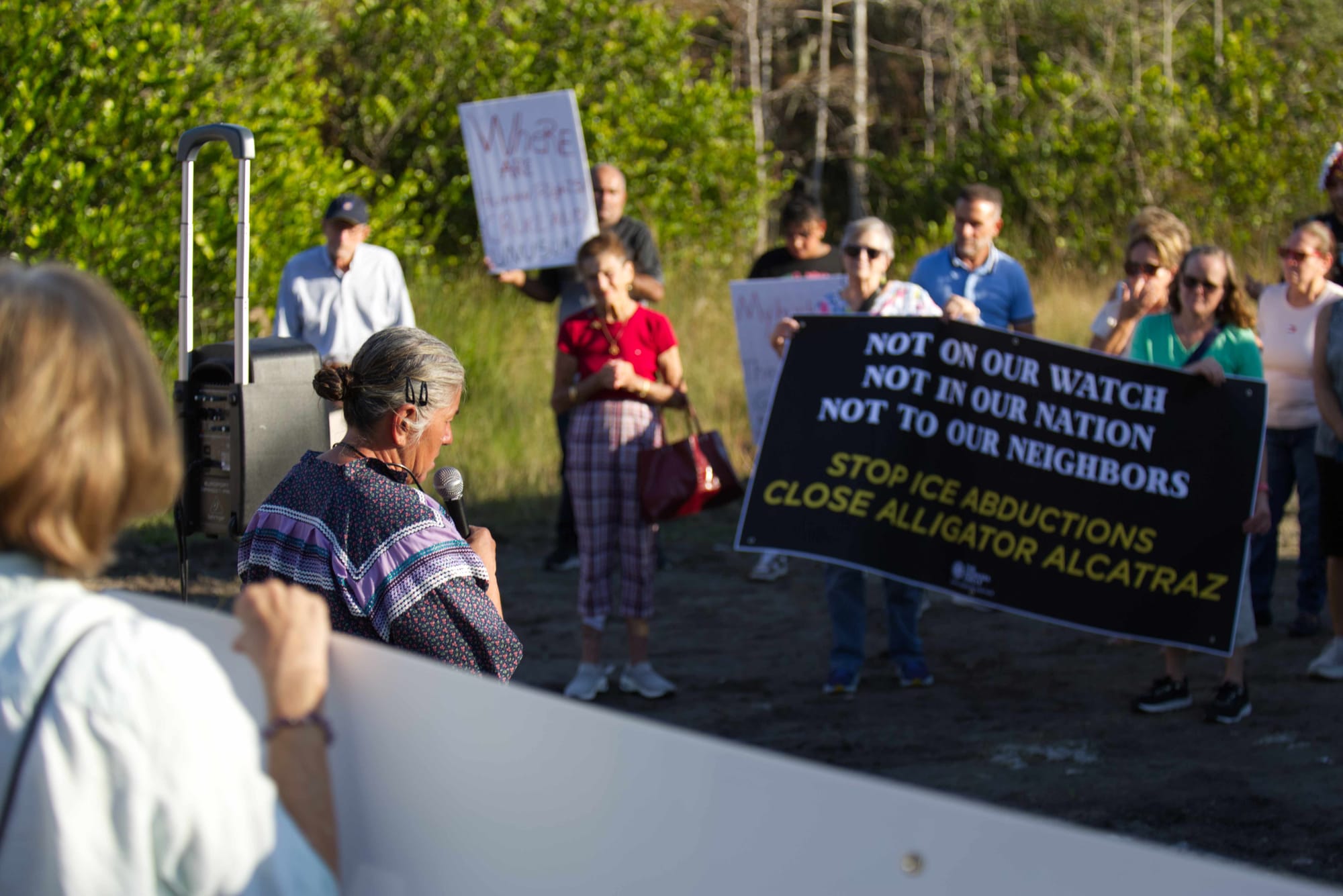
Attendance at the vigils has varied during the 15 weeks of services held at the site, from a peak well into the hundreds, to lows in the fifties to sixties. Vigils in the last month have seen similar fluctuation. However, the clergy presence has remained steady as has the presence of Betty Osceola, daughter in law of Buffalo Tiger, the man who led the Miccosukee charge against the Dade-Collier airport, where the South Florida Detention Center now sits, in the late 1960s and 1970s.
